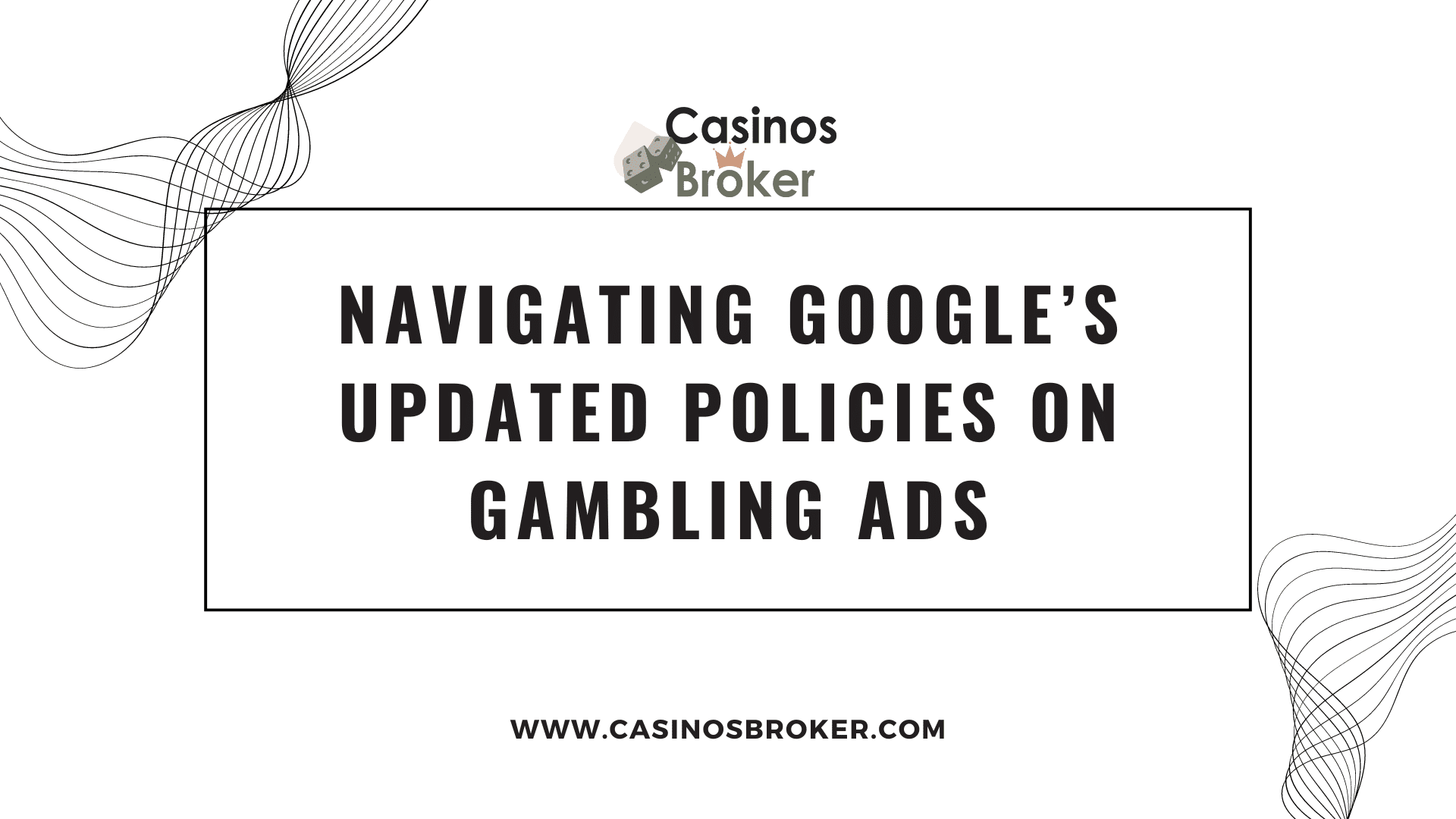Google has recently revised its policies concerning gambling ads, a category renowned for its complexity. Adhering strictly to Google’s specific guidelines is now more crucial than ever. These updates emphasize the importance of marketers staying informed and compliant to maximize the potential of Google’s advertising platform while following its rules. Here’s what these updates mean for your gambling marketing strategies.
Google’s Framework for Regulating Gambling-Related Ads
To effectively promote specific gambling platforms, marketers must understand the required certification and the nuances in Google’s gambling ad policies. Let’s delve deeper into these aspects.
Land-Based vs. Online Gambling Google Ads
Google distinguishes between ads for physical casinos and online gambling platforms, each subject to unique regulations:
- Land-Based Casinos: Ads for physical casinos, such as those in Las Vegas or poker tournaments, must align with local legalities and require a valid ads certificate from Google. If gambling is restricted in the target area, the ad will not be approved.
- Online Casinos: Advertisers must provide evidence of being legitimate operators complying with the laws of the country or region where the ad will run. A Google gambling ads certificate is mandatory for all online betting sites, casinos, lotteries, scratch cards, bingo, and slot platforms, including sportsbook and casino bonuses and promotions.
Obtaining Gambling Ads Certification
Google mandates advertisers of gambling-related content to obtain certification by providing documentation proving their legitimacy and compliance with local laws. The certification process varies based on the type of gambling activity and the target geographical area:
- Privately-Licensed Operators: In countries permitting online gambling, complete the online gambling application in the Google Ads Help Center with the necessary information to meet Google’s standards.
- State-Run Entities: In regions allowing only state-run gambling, submit a dedicated form detailing the entity’s operations and provide the website URL.
- Social Casino Games: Submit an application with details like the website URL or app, Google Ads customer ID, and target country. A separate application is required for each targeted country.

Special Considerations for Different Gambling Formats
Google has distinct ad policies for NFT gambling, social casino games, and sports betting sites:
- NFT Gambling: While advertising NFT games with in-game purchases is allowed, any game involving real value betting or casino-style mechanics with NFTs as prizes is prohibited.
- Social Casino Games: These can be advertised as long as they don’t target minors or imply the potential for real money winnings. The games can simulate a casino experience without actual gambling.
- Sports Betting Platforms: Advertising sports gambling is subject to regional regulations. For example, in the US, only state-approved entities can advertise, meaning the sports betting services must be legally recognized in the targeted state.
The Cost of Getting It Wrong
Non-compliance with these policies can result in Google rejecting your ads and potentially suspending your account. A suspension halts all current and future advertising efforts on Google, including any new accounts you attempt to create. This setback can severely impact your online presence and damage your brand’s credibility.
Tips to Consider When Creating Google Ads
Successfully managing gambling ads requires attention to detail and a thorough understanding of the regulations. Here are some tips to keep in mind:
- Adhere to Local Laws: Ensure your online casino platforms or games comply with the gambling laws of the targeted area. Google monitors legal compliance closely.
- Get Certified: Obtain Google Ads certification before creating gambling ads. This certification confirms your understanding and compliance with Google’s rules.
- Be Transparent: Clearly convey what you are promoting and your connection with the casino. Avoid misleading information and ensure your ad accurately reflects the types of games you are showcasing.
- Avoid Unauthorized Use of Trademarked Terms: Using trademarked terms without explicit authorization violates intellectual property rights and can result in Google rejecting your ad. Obtain permission or use non-trademarked language.
- Promote Responsible Gambling: Your landing page should highlight responsible gambling practices, including age limits, risks of addictive gambling, and resources for seeking help. Google enforces strict guidelines in this area.
Transforming Challenges into Opportunities with Google Ads
Navigating Google’s gambling ads policies can be challenging but rewarding. The potential for significant returns is high if you adhere to the regulations. However, non-compliance can lead to penalties. By staying up to date with Google’s policies and playing by the rules, you can leverage this lucrative channel effectively.
Frequently Asked Questions (FAQ) on Google’s Gambling Ad Policy Updates
1. Why does Google distinguish between “Social Casinos” and “Sweepstakes Casinos” in the new updates?
This is a critical distinction that often trips up marketers. Google has recently tightened its definitions to close loopholes. While Social Casinos (purely free-to-play with no real-world value output) are allowed with lighter certification, Sweepstakes Casinos—which use a dual-currency model to offer redeemable prizes—are increasingly treated under the stricter “Online Gambling” policy. You can no longer advertise a Sweepstakes model under a standard Social Casino certification; doing so is a fast track to account suspension.
2. Can I use a single “Gambling Certification” for all my target markets?
No. Google’s certification is domain-specific and country-specific. A license to advertise in New Jersey does not allow you to run ads in Pennsylvania, nor does a UKGC license cover you for Canada. You must submit a separate application for each jurisdiction you intend to target, providing the specific license or legal justification for that exact region.
3. How does the policy regarding “NFT Gambling” differ from standard crypto advertising?
Google draws a hard line between “Gamified NFTs” and “Gambling with NFTs.” You generally can advertise NFT games where items enhance gameplay (e.g., skins or weapons). However, you cannot advertise games where NFTs are staked or wagered for a chance to win real-world value (including other crypto). If your NFT project involves casino mechanics (slots, roulette) or staking-for-reward, Google classifies it as “Online Gambling,” requiring full licensure, which most NFT projects lack.
4. What happens if I accidentally target a restricted region with my gambling ad?
Google’s policy enforcement is automated and unforgiving. If your campaign settings are loose and you serve impressions in a restricted jurisdiction (e.g., serving a sports betting ad in a US state where you aren’t licensed), your ad will be disapproved immediately. Repeated violations or “egregious” errors can lead to a permanent account suspension, barring your domain and payment method from ever advertising on Google again.
5. Why do I need a specific “Click-Through URL” for my application?
Google requires the exact final destination URL during certification to prevent “cloaking” (where an advertiser shows Google a compliant page but redirects users to a different, non-compliant one). Your ads must lead directly to the domain verified in your certificate. If you use third-party tracking links or redirect chains that obscure the final destination, your ads will likely be rejected for “Destination Mismatch” or “Circumventing Systems.”





